This blog highlights the surge in financial crimes exacerbated by the pandemic, with significant increases in fines for AML violations. It underscores the challenges faced by financial institutions, such as fraud detection, reporting inaccuracies, and compliance costs. Emphasizing the role of digital transformation, it outlines how AI and advanced tools can enhance fraud management and compliance through the Digital Knowledge Operations™ (DKO) framework.
The onset of the pandemic saw a humongous increase in the number of financial crimes all around the world. According to PwC’s Global Economic Crime and Fraud Survey 2022, 46% of the organizations admitted to experiencing fraud or other financial crimes in the past two years.
In the year 2019, banks had to pay $10 billion in fines for violating anti-money laundering terms. This amount was doubled when compared to $4.27 billion in 2018, which indicates that managing financial frauds has become extremely crucial.
The Rise of Money Laundering in Financial Sectors
Over the years, money laundering is found to be a serious financial crime that has weakened the financial sector and impacted economic growth in the U.S.
Banks, being one of the largest financial institutions, are at a higher risk of crimes related to money laundering. The introduction of digitization and automation, increase in transaction volumes, and integration with complex financial systems across the world have added to the vulnerabilities.
Some of the associated challenges faced by financial organizations are:
- Mishandling of financial statements
- Misappropriation of assets
- Misleading disclosures
- Breach of confidentiality
- Loss of revenue
- Reputational risk
Top Challenges in Managing Financial Frauds
To identify and prohibit acts of money laundering and other financial frauds, anti-money laundering (AML) laws were introduced. According to these laws, banks and other financial organizations were required to set up a compliance system with the necessary tools like the KYC program, customer due diligence, reporting suspicious transactions, record keeping, etc.
However, all financial institutions, regardless of their size, often face challenges when combating these frauds in line with the growingly stringent AML laws and sophisticated money laundering schemes.
1.Fraud detection
Although new technologies and compliance laws have been introduced, the number of money laundering cases has not gone down. According to Zippia, the money laundered across the US is found to be approximately $300 billion each year. Criminals are finding loopholes in technology and compliance laws to carry out fraudulent activities.
2.Inaccurate financial reporting
The right financial tools detect and manage suspicious activities and report the same to the concerned authorities for further investigation. For example, tools such as customer due diligence tools, suspicious activity detection tools, AML monitoring software, KYC tools, and more help financial institutions mitigate the risks. However, not many financial institutions know about these tools and can afford them.
Further, these tools do not give accurate results, leading to the loss of time, effort, and money.
3. Excessive workload
To comply with AML regulations, every financial organization has to appoint a compliance team that ensures suspicious activities are monitored regularly.
Although such activities are detected automatically with the help of technology, the number of alerts generated is overwhelming. Most of them are false alerts. According to a report by PwC, 90 – 95% of the alerts generated by AML systems are false positives. This causes the compliance team to have an additional work burden.
4. Additional costs of compliance
Financial institutions have to spend additional amounts to be AML compliant. This includes the costs of making changes to the existing processes for identifying and reporting frauds.
5. Lack of skilled resources
While spending time adhering to AML guidelines and compliance regulations, banks and financial organizations struggle to find time and resources to manage suspicious activities.
Intelligent Digital Solutions are Here to Help
Digital transformation has brought about significant changes in the way financial organizations manage financial frauds. With artificial intelligence, big data, and machine learning taking over, financial systems are empowered to detect fraud and report them while adhering to the AML regulations.
1. AML Framework Adoption
The modern systems implement anti-money laundering and counter-terrorist financing measures to detect terrorism financing and other criminal activities. These systems leverage automation to eliminate the need to use multiple systems for investigating suspicious activities.
2. Fraud Analytics
Fraud detection tools help in identifying an actual or potential fraud. These tools employ the right processes to analyze the financial systems to detect fraud using technology or manual fraud detection methods. In addition to this, it also suggests preventive measures using data analytics.
3. KYC
Know Your Customers helps in understanding the customers or clients better. Financial institutes can verify the identity of the customers and conduct risk assessments by interpreting their activities.
4. Regulatory Reporting
Besides, modern systems expedite the report generation process. The reports proving compliance with the required regulatory provisions can be submitted to the concerned authorities without any manual intervention.
Meeting AML Compliance with Digital Knowledge Operations™
Anaptyss leverages its proprietary Digital Knowledge Operations™ (DKO) framework that combines domain-led expertise, intelligent digital solutions, and a scalable global talent pool for managing financial frauds through effective detection and SAR filing.
The DKO-based solution approach combines AI technology, data analytics, and cognitive compliance solutions to monitor fraud detection control points, manage the AML processes, and provide a mitigation plan. It can help financial institutions combat money laundering with quick and accurate detection, better decision-making, and cost-effectiveness.
Want to know more about how our DKO framework and intelligent digital solutions can help your business manage financial frauds? Write to us: info@anaptyss.com


















